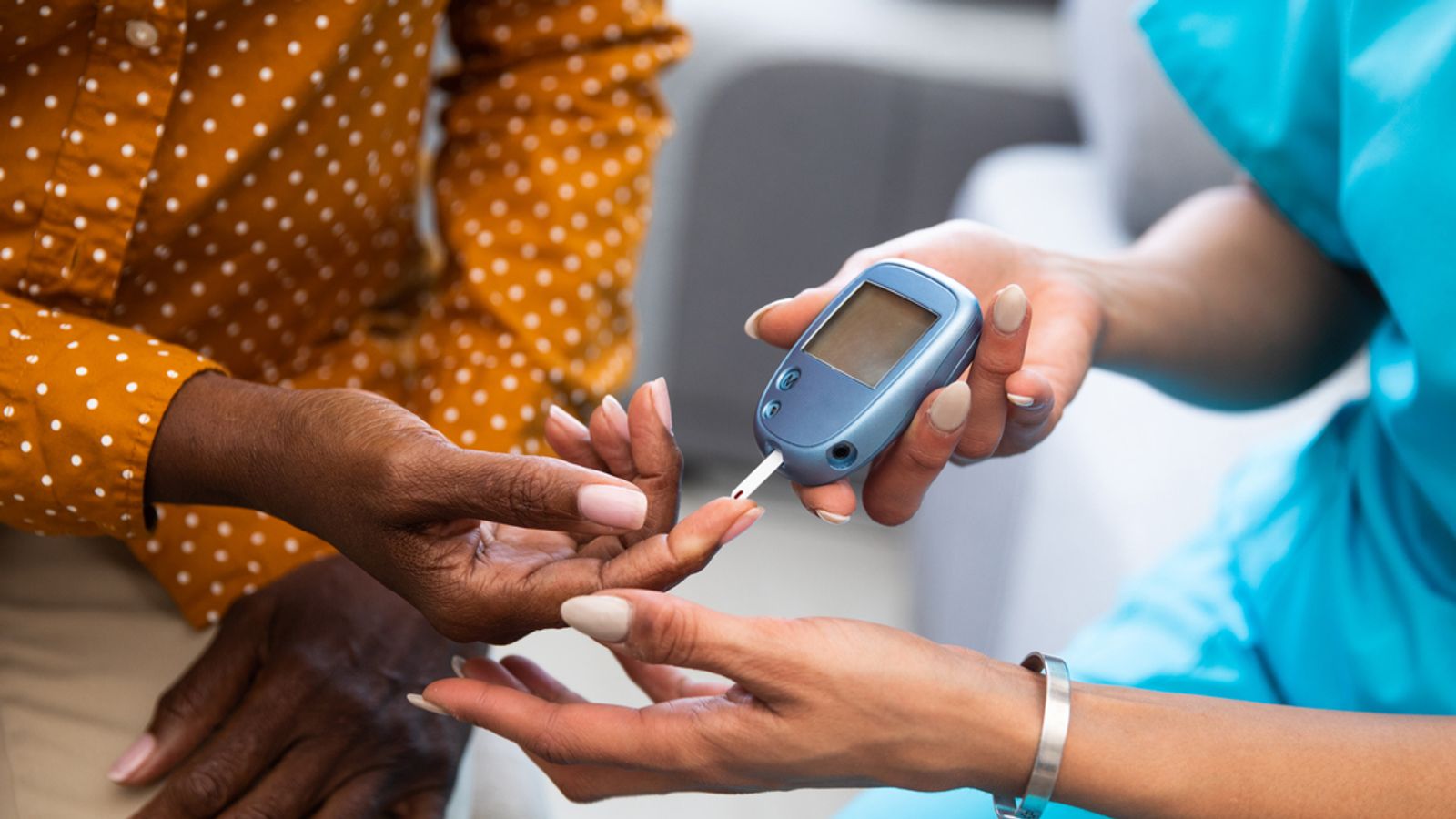Diabetics forced to ‘go it alone’ as 7,000 excess deaths linked to condition, says charity


The number of people with diabetes who aren’t receiving relevant checks is “deeply alarming” – with more than 7,000 excess deaths linked to the condition last year, a charity has warned.
Diabetes UK said “fragmented access to services across the country” is having a huge impact and that many people are being left to “go it alone”.
Its data showed a 13% rise in excess deaths linked to diabetes in England in 2022 compared with pre-pandemic levels, with most “not attributable directly to COVID”.
The situation is said to have worsened in the first part of 2023, with 1,461 excess deaths between January and March – three times higher than the same period last year.
With the right support, diabetes can be managed and people can lead a normal life.
The condition is monitored by regular checks, known as care processes, around eight times a year to prevent serious complications.
These include things like blood pressure, cholesterol and blood sugar, and are key to preventing serious diabetes-related complications.
But the charity found under half (47%) of people with diabetes in England received all eight checks in 2021-22, meaning 1.9 million did not get the care they need.
Diabetes UK said the vital health checks often aren’t happening, and the consequences can be fatal.
Advertisement
Anthony Parker was diagnosed with diabetes as a child and has lived with it for more than 30 years.
“It was pretty tough at first… being a youngster aged 10, having to inject myself four times a day,” he said.
But the condition was brought under control by the time he became an adult thanks to new technology and regular checks.
In 2020, however, many of his check-ups were cancelled and eventually he developed retinopathy, a condition which can lead to blindness.
“It’s very frustrating,” said Mr Parker.
“Throughout the 30 years I have been diabetic, the support has been fantastic. But the last two years it has been a real challenge.
“It has changed my life.
“Since I had the problems with my eyes it meant I have been concerned about going out to keep fit and play football like I usually do, for fear of another bleed behind my eyes.”
He added: “It’s also meant I’ve stopped doing some of the activities I used to do with my son. It means I have put on a bit of weight and it has also impacted my mental health.”
Mr Parker said he thinks his condition could have been avoided.
Please use Chrome browser for a more accessible video player
2:11
Man is diabetes free after new diet
Read more:
Why type 2 diabetes patients might want to swap sugary drinks for coffee
Weight loss can put type 2 diabetes in remission for ‘at least five years’
Chris Askew, head of Diabetes UK, said: “Too many people with diabetes are being left to go it alone managing this challenging and potentially fatal condition, with deeply alarming numbers of checks either missed or delayed.”??
He said health professionals were working hard but are “too stretched to provide the time and personalised support that is required – and it’s having a catastrophic impact”.
Mr Askew wants the government to do more to tackle diabetes in its Major Conditions Strategy and prioritise local healthcare systems.
A health department spokesperson said the NHS diabetes programme is the largest “of its kind in the world” and had “helped over 18,000 people avoid type 2 diabetes through expert advice on healthy eating and exercise”.
They added: “We’re already helping people make healthier choices by restricting the location of foods high in fat, salt or sugar and introducing calorie labelling on menus.
“Our Major Conditions Strategy will cover Type 2 Diabetes and help to reduce pressure on the NHS.
“Cutting waiting lists is one of the government’s top five priorities, and the NHS has virtually eliminated waits of over two years for treatment and has cut 18-month waits by over 50% in a year.”